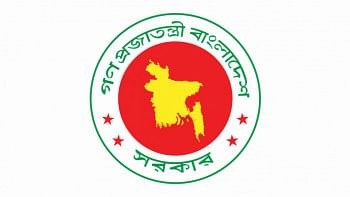Facebook asked to filter content

The government yesterday met Facebook executives for the first time to express its concerns about the negative impacts of the popular social platform and claimed that it was threatening national security.
The representatives of Facebook held at least two meetings with government high-ups yesterday and they were asked to set up an office in Bangladesh, take measures to filter local content, and share information with the government about users who post content that threaten the country's security.
The government put emphasis on contents related to religious provocation, cruelty against women, and conspiracy against the state.
Vikram Langeh, law enforcement specialist of Facebook in South Asia, and Deepali Liberhan, public policy manager for the region, attended a long meeting with Home Minister Asaduzzaman Khan Kamal at his office.
State Minister for Telecom Tarana Halim, State Minister for ICT Division Zunaid Ahmed Palak and representatives from the police, the Director General of Forces Intelligence, the National Security Intelligence, the Rapid Action Battalion, and the Bangladesh Telecommunication Regulatory Commission were also at the meeting.
The government presented two cases before the Facebook officials -- the religious provocation behind the Ramu incident, and the killings based on the rumour of convicted war criminal Delwar Hossain Sayeedi's face being seen on the moon.
In response, the Facebook officials said they were not aware of the incidents and would report the concerns and the government requests to the top management of Facebook.
They also said they would hopefully return within a short time.
The government said Facebook needs to understand the culture and values of Bangladesh, according to a senior official who attended the meeting.
"In the meeting we said that it is a very large market for Facebook but they haven't given it the proper attention. They have not even respected the government's requests," said a top official requesting not to be named.
After the meeting, the home minister said Bangladesh requested Facebook to establish a filtering mechanism for the country.
He told reporters at his office that the meeting was very fruitful.
"Sometimes it is used for propaganda, creating anarchy to score political points and promote activities that threaten national security," he said.
The Facebook officials declined to talk to the media.
However, a senior official of a law enforcement agency quoted Vikram Langeh as saying, "There should be regular interaction between the government and Facebook. We will try to convince our management to continue the engagement with the government."
Bangladesh follows France and the European Commission who have reached out to internet companies recently to take actions in line with their requests.
France and the EC have demanded faster action on online terrorism incitement and hate speech following the Paris attacks.
Facebook, Google and Twitter were, albeit quietly, stepping up efforts to combat online propaganda and recruiting by Islamic militants, according to a Reuters report.
The discussions with the Facebook officials came nearly three weeks after the government blocked access to Facebook, its messenger app, WhatsApp and Viber on security grounds.
Kamal said the government would soon lift the ban on Facebook.
On November 30, Tarana Halim sent a letter to Facebook, seeking the social networking site's cooperation in ensuring cyber security in Bangladesh.
Tarana raised the issue of violence against women in the meeting and said sometimes Facebook statuses of users prompted girls to commit suicide.
"We know Facebook has their own standard on values and culture, but there is a huge difference between values of the US and that of Bangladesh," said Tarana.
The representatives from the law enforcement agencies raised the security issue. They claimed that they had reached out to "Facebook thousands of times" since 2012 but had received no response.
According to the Global Government Requests Report of Facebook released last month, the company has not provided any data to Bangladesh government since it was introduced in 2013.
The Facebook officials also met Tariq Ahmed Siddique, the prime minister's security adviser, sources at the telecommunication division said.
At the meeting, the PMO asked the Facebook officials to establish an office in Dhaka in order to deepen relations between the government and the company.

 For all latest news, follow The Daily Star's Google News channel.
For all latest news, follow The Daily Star's Google News channel. 



Comments